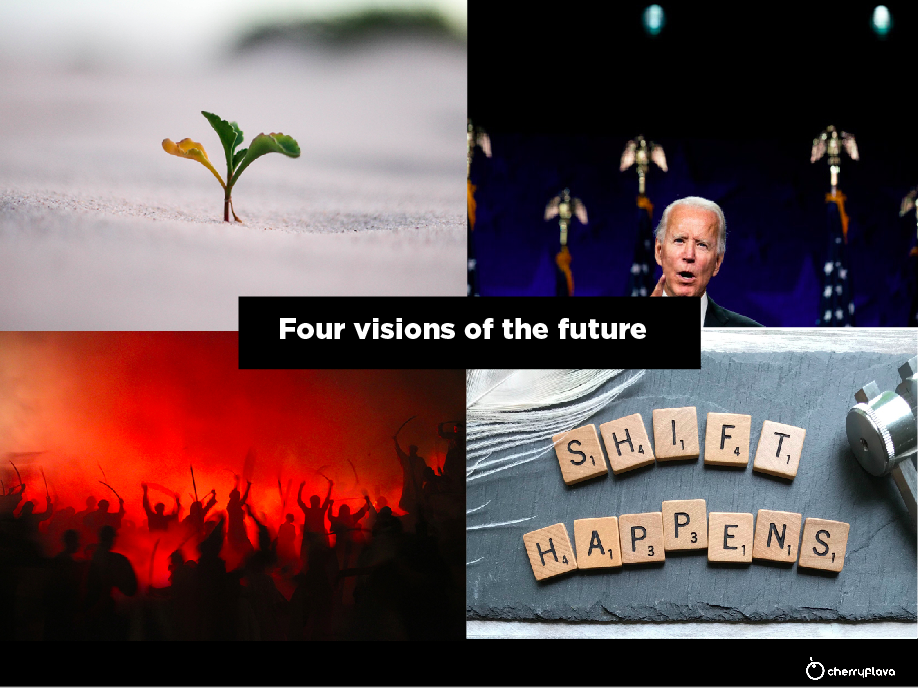What would you do if...?
Scenario planning is useful because it opens up people's minds to the longer-term effects of weak signals of change.

What would you do if...by the end of this year, you and your family are relocated to another country, because the company that you work for has decided, in a surprise move, that you are better suited to working in another part of the world?
What would you do if...the covid-19 pandemic is never brought under control and we are forced to carry on living with lockdowns and restrictions to our movements for the next decade?
What would you do if...the price of Bitcoin goes to US1 million by next year?
These future scenarios are all possible (even if some require a bit of a stretch of the imagination), but what would you do today if they were all probable?
If you preferred the idea of one of these future scenarios (to the future that was already in your head before reading them), what could you do today to make that outcome a reality?
Scenario planning is a very useful tool for managing uncertainty.
What it offers is not a singular prediction of the future, but rather a set of alternative images of the future, which offer a clearer understanding of how long-term change and sudden trend-breaks can impact an organisation.
According to research done by René Rohrbeck - of Aarhus University, and Jan Oliver Schwarz, of Germany’s EBS Business School, “strategic foresight” efforts add value through (1) an enhanced capacity to perceive change, (2) an enhanced capacity to interpret and respond to change, (3) influence on other actors, and (4) an enhanced capacity for organizational learning.
Companies like Royal Dutch Shell are well known for making extensive use of scenario planning, and the scenario planning work in the 1970s by people like Pierre Wack is largely credited for saving the company and helping them profit handsomely from the devastating global oil crisis at the time.
The power of scenario planning
'Corporations, like human beings, act on the basis of an agreed-upon reality—which is, in essence, a story. Stories of the past and the present can be based on facts, but a story of the future is just a story. The problem is that the stories we most commonly tell about the future simply extrapolate from the present.
Perhaps the greatest power of scenarios, as distinct from forecasts, is that they consciously break this habit. They introduce discontinuities so that conversations about strategy—which lie at the heart of any organization’s capacity to adapt—can encompass something different from the present.' - via
Scenario planning is useful because it opens up people's minds to the longer-term effects of uncomfortable, unusual, unthinkable weak signals of change.
They are stories that pose interesting questions of management that are not 'an opinion that needs to be defended' or 'a personal agenda that others are forced to buy into'.
A sustained scenario planning program creates the conditions under which better business decisions can be made. The process helps leadership appreciate ambiguity and develop the capability and agility to better deal with uncertainty.
Scenarios help organisations shape the future rather than become victims to it, and in a volatile, increasingly uncertain world there is no better time than now to get busy with proper scenario planning.
Do your own scenario planning

We can help your organisation to explore the future through a facilitated scenario planning workshop - find out more here or get in touch to discuss.




/https%3A%2F%2Fspecials-images.forbesimg.com%2Fimageserve%2F6021150cbea5a52fb62d90d8%2F0x0.jpg)





